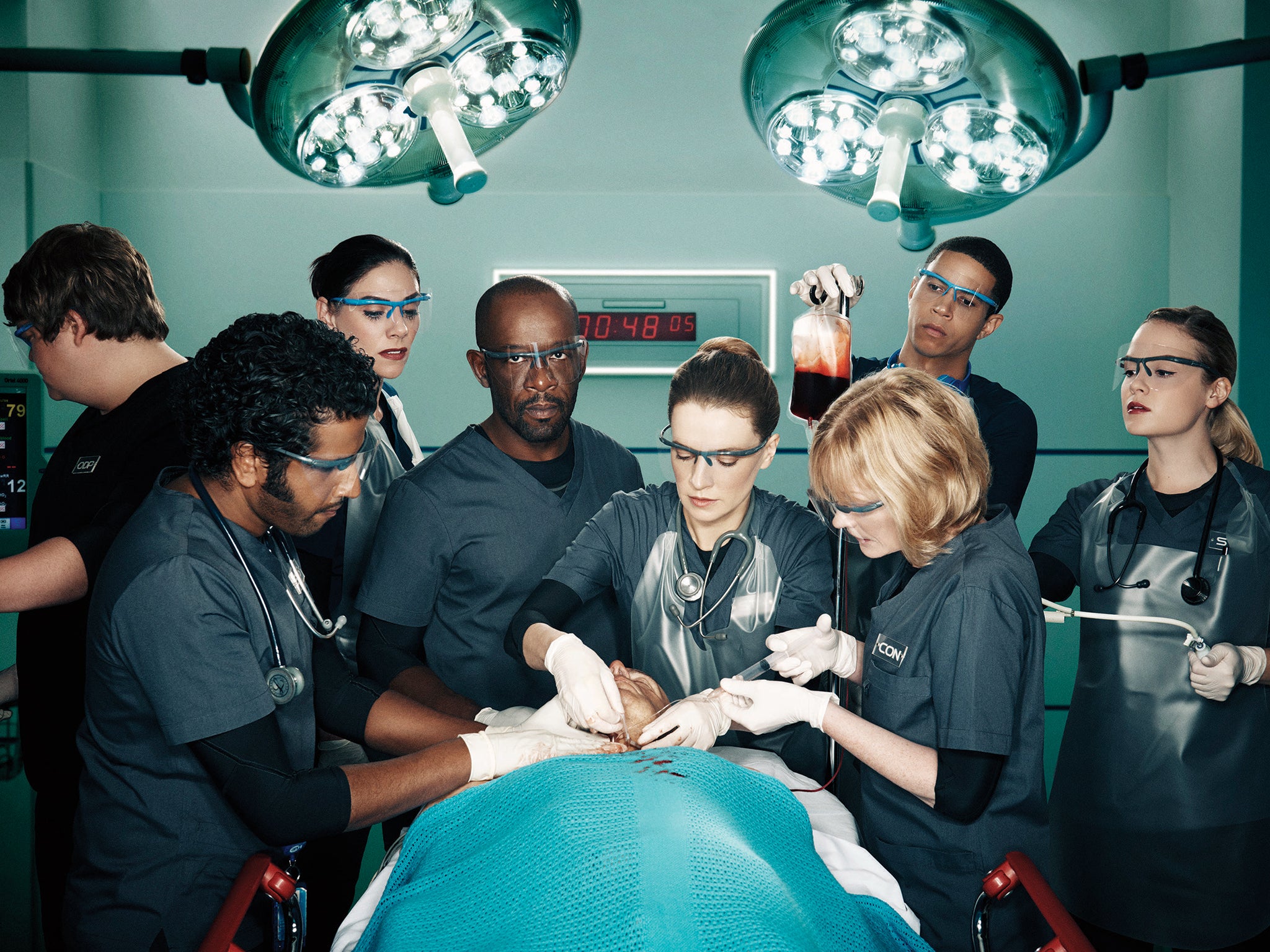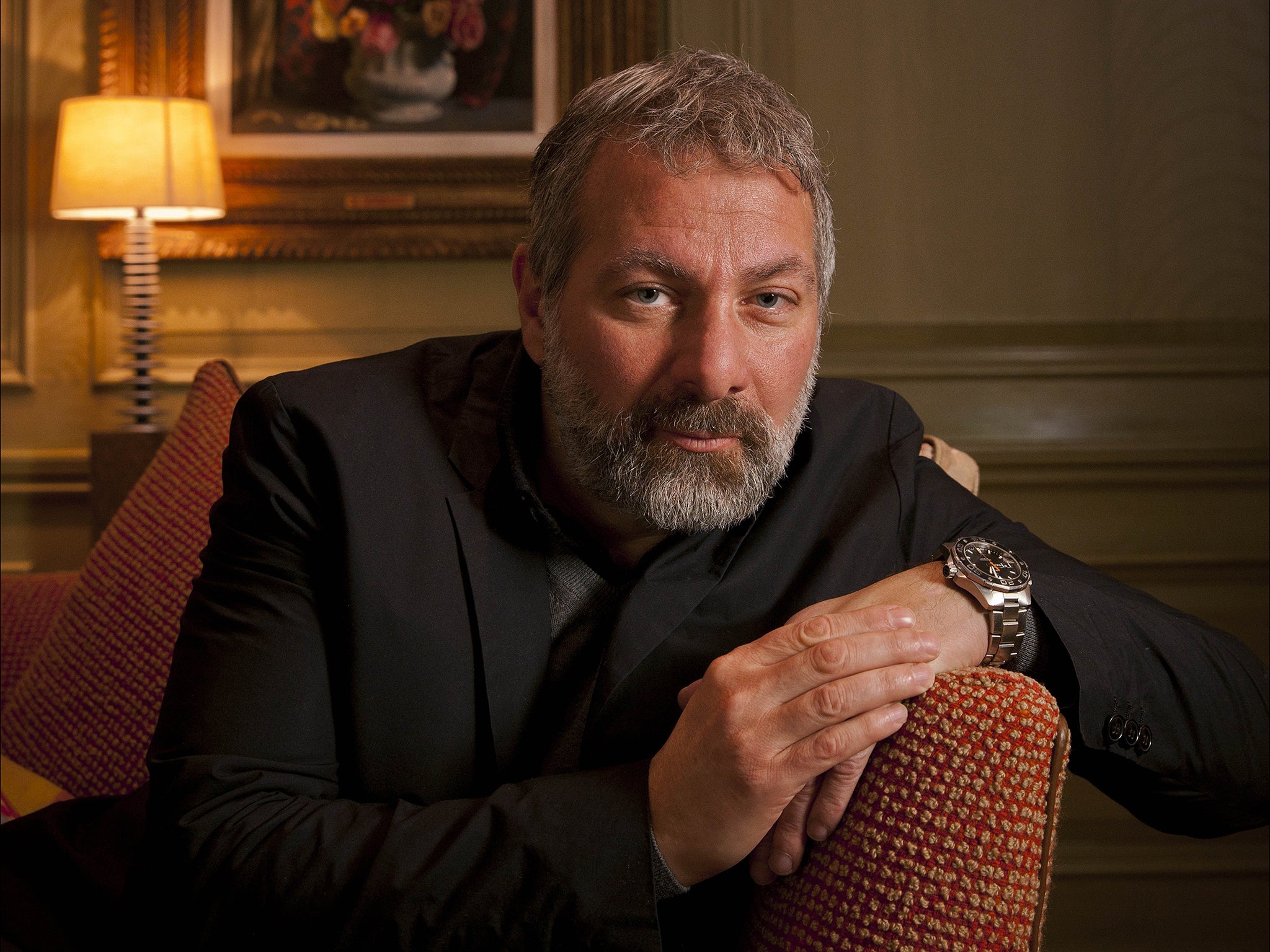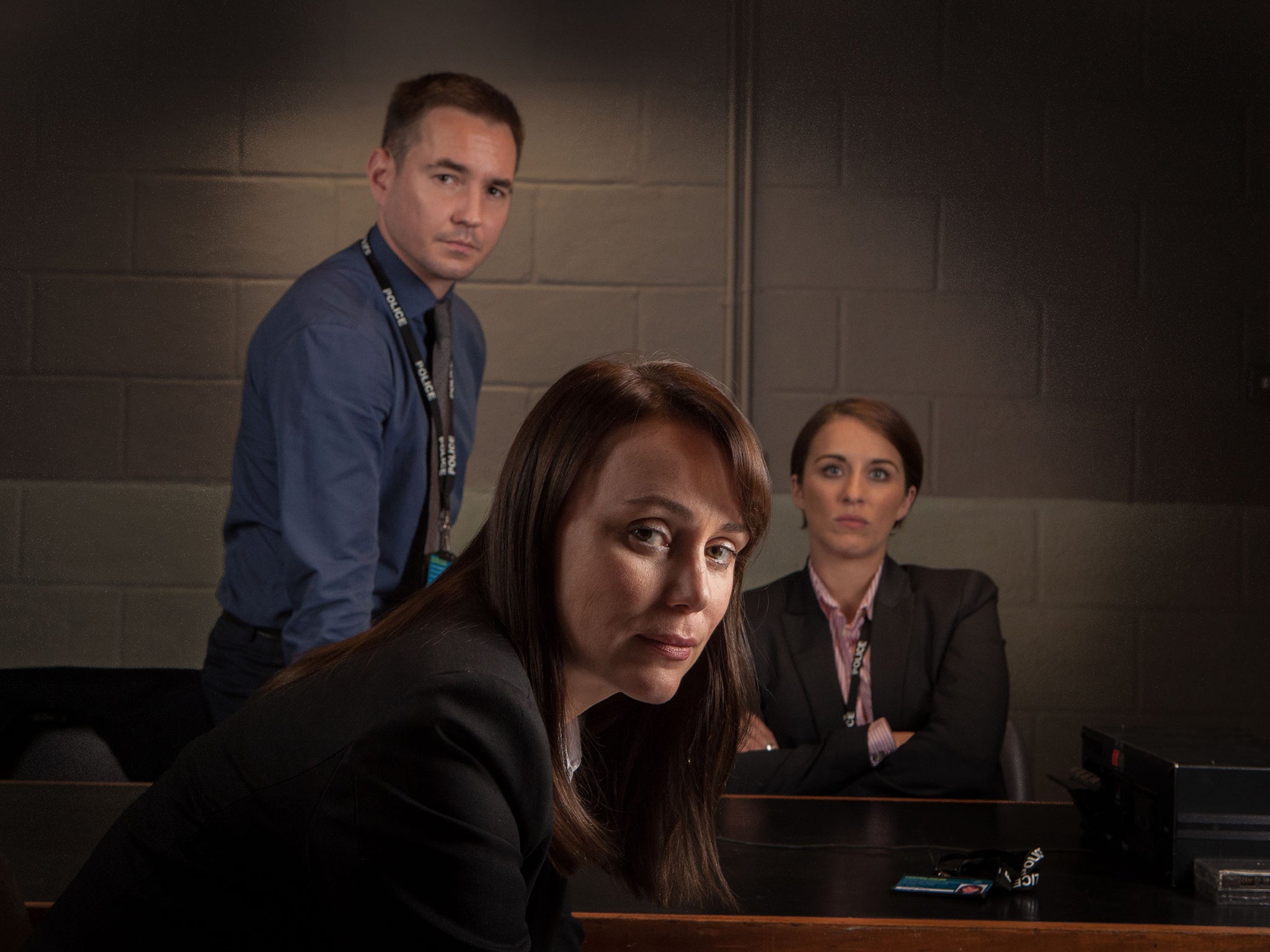Sky's new medical series Critical makes realistic drama out of trauma, according to creator Jed Mercurio
‘Line of Duty’ writer/creator Jed Mercurio is returning to his medical drama roots

Your support helps us to tell the story
From reproductive rights to climate change to Big Tech, The Independent is on the ground when the story is developing. Whether it's investigating the financials of Elon Musk's pro-Trump PAC or producing our latest documentary, 'The A Word', which shines a light on the American women fighting for reproductive rights, we know how important it is to parse out the facts from the messaging.
At such a critical moment in US history, we need reporters on the ground. Your donation allows us to keep sending journalists to speak to both sides of the story.
The Independent is trusted by Americans across the entire political spectrum. And unlike many other quality news outlets, we choose not to lock Americans out of our reporting and analysis with paywalls. We believe quality journalism should be available to everyone, paid for by those who can afford it.
Your support makes all the difference.It’s the little details Jed Mercurio loves most. The mounds of paperwork filed in police corruption drama Line of Duty; the attention paid by both Cardiac Arrest and Bodies to the mind-numbing bureaucratic tasks of the NHS; the way in which a trauma surgeon holds a scalpel in his latest medical series Critical. All these help convince audiences they’re watching real life.
Even his fiction – he has written three novels – is forensically detailed, whether explaining the effect of flight on the body in Ascent, his elegant tale of the space race, or detailing exactly how the levels of hormones in President John F Kennedy’s bloodstream affected his ability to govern in 2009’s American Adulterer.
“I like realism in drama and I like writing realism,” Mercurio admits. “I’m not scared of procedure and I’ll often seek that out. If something needs to happen on one of my shows then I’ll do the research, which usually involves talking to the people who do that job and then finding out the detail. It’s not just a case of being given a broad idea. I want to know exactly how something happens and I enjoy putting that into the work.”

We’re hidden away in a tiny back room in Soho’s Charlotte Street Hotel to discuss his Critical, which starts on Sky 1 on Tuesday and which he describes as “ultra-adrenalised … graphic … very vivid”. Set in a major trauma unit, it covers one case each week. Little is known about the each patient, instead the focus is on the operation. A clock counts down the minutes. At the end of the episode, life is saved, or lost.
If that sounds like a cross between a documentary series and 24, it almost is. It’s also strangely compelling, largely because of that attention to detail. While there may be recognisable actors in the cast – including Lennie James as the Trauma Team Leader and Fresh Meat’s Kimberley Nixon as the team’s desperately keen newest member – their movements as they bustle around the prone patient are so realistic that it feels as though you’re eavesdropping on life.
“I’m interested in the world of work,” Mercurio says. “It defines people. If you have someone who investigates crime and isn’t a police officer, it’s ridiculous because it doesn’t exist in the real world. No crime has ever been solved by someone who wasn’t a police officer, ever, anywhere. But the other thing is you’re constantly having to negotiate with the audience about what jurisdiction they’ve got.”

Outspoken, forthright and secure in his opinions, Mercurio doesn’t suffer fools – or foolish questions. This is clear when we come to discuss last year’s second series of Line of Duty: hugely successful as it was, with much acclaim, particularly, going to Keeley Hawes’s lead performance as a cop under suspicion, its ending proved a letdown for many, and Mercurio makes clear he did not appreciate some of the online chatter.
“I’m open to sensible debate about things and always happy to discuss those things. It’s when you get the other side of it, the darker side that I’m less happy. [The ending] was about the difference between legal guilt and moral guilt and, well, I think people get invested in a story and they’re used to everything being tied up neatly in a bow – the good guys win, the bad are punished. Some were aware of the dramatic integrity of the ending but were left wishing for a more idealistic outcome.”
What of the stories claiming that he’d apologised for that ending? He laughs. “The BBC asked me to do the webcast [and] I just put one mollifying comment. I think I said something like ‘I’m sorry if some of you were left confused or disappointed’ and then said what the intention was. That’s not an apology.”
It’s tempting to see this combativeness as a sign of Mercurio’s recent success – he admits Line of Duty transformed his life because “I just wasn’t getting stuff made before.” But I suspect he has always been happy to have a bit of a debate, although he claims to be less bothered by criticism these days. “When I did Cardiac Arrest the lies and deliberate inaccuracies really wound me up whereas now I’m so accustomed to it, it just doesn’t bother me.”
Cardiac Arrest marked the former doctor’s entrée into TV after he answered an ad in the British Medical Journal from a production company looking to recruit medics to help develop a drama. His decision to return to the medical genre had been percolating for a while. “It was about finding the right project, something that felt bigger than the ones I’d done before.”
The answer, he concluded, was to focus on the mechanics of medicine. “Bodies was about the systemic failures to deal with certain important issues that were prevalent in the NHS at that time and Cardiac Arrest’s agenda was the working conditions of junior hospital doctors. But I’ve moved on and the NHS has moved on,” he says. “What we’re looking at in this show is the purity of the experience of actually saving someone’s life rather than the things that go on around it.”
That’s not to say Critical lacks Mercurio’s trademark bite. “We wanted to avoid that thing of [characters] talking about their personal lives all the time. [Instead] there are natural interludes where they’re waiting for the result of a scan or scrubbing up for an operation and these are the snatched moments where they interact. You have a sense of the character’s hinterland but you’re also thinking ‘come on, someone’s life is in the balance here. Stop talking about your personal life and get on with the job’.”
His own job shows no sign of slowing down. “I do work long hours,” he admits. In April, shooting begins on Series 3 of Line of Duty and he recently adapted Lady Chatterley’s Lover for the BBC. Unsurprisingly, a fair amount of workplace detail is involved. “I was always giving Richard Madden [the former Game of Thrones actor who plays gamekeeper Mellors] stuff to do,” he admits. “I didn’t want him hanging around saying ‘m’lady’ all the time so he’s always building things or shooting things and hanging dead things up or whatever. He’s doing proper gamekeeping. If people just stand around and talk to each other it starts to look a bit fake to me.”
‘Critical’ starts on Sky One at 9pm on Tuesday
Join our commenting forum
Join thought-provoking conversations, follow other Independent readers and see their replies
Comments